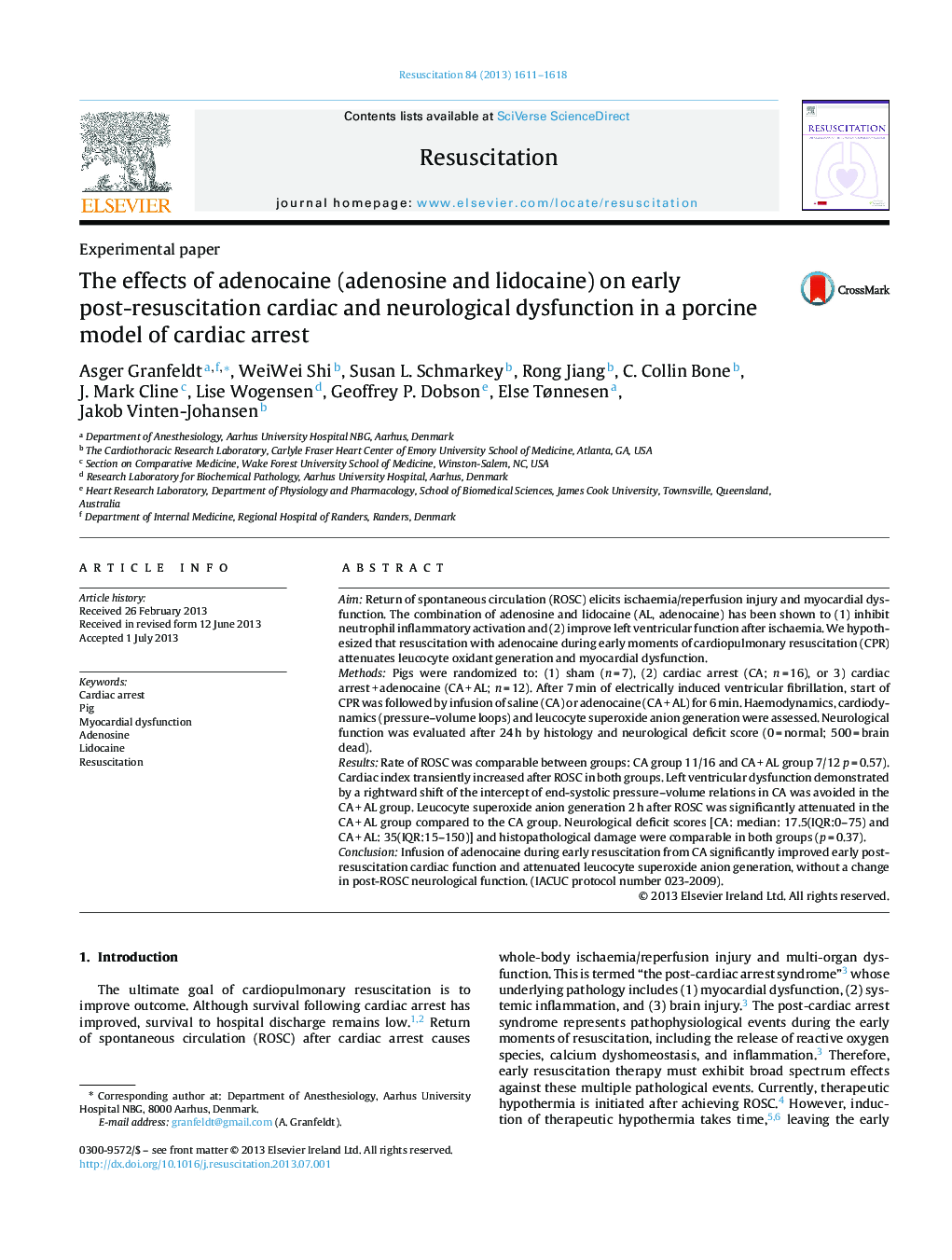| Article ID | Journal | Published Year | Pages | File Type |
|---|---|---|---|---|
| 5998996 | Resuscitation | 2013 | 8 Pages |
AimReturn of spontaneous circulation (ROSC) elicits ischaemia/reperfusion injury and myocardial dysfunction. The combination of adenosine and lidocaine (AL, adenocaine) has been shown to (1) inhibit neutrophil inflammatory activation and (2) improve left ventricular function after ischaemia. We hypothesized that resuscitation with adenocaine during early moments of cardiopulmonary resuscitation (CPR) attenuates leucocyte oxidant generation and myocardial dysfunction.MethodsPigs were randomized to: (1) sham (n = 7), (2) cardiac arrest (CA; n = 16), or 3) cardiac arrest + adenocaine (CA + AL; n = 12). After 7 min of electrically induced ventricular fibrillation, start of CPR was followed by infusion of saline (CA) or adenocaine (CA + AL) for 6 min. Haemodynamics, cardiodynamics (pressure-volume loops) and leucocyte superoxide anion generation were assessed. Neurological function was evaluated after 24 h by histology and neurological deficit score (0 = normal; 500 = brain dead).ResultsRate of ROSC was comparable between groups: CA group 11/16 and CA + AL group 7/12 p = 0.57). Cardiac index transiently increased after ROSC in both groups. Left ventricular dysfunction demonstrated by a rightward shift of the intercept of end-systolic pressure-volume relations in CA was avoided in the CA + AL group. Leucocyte superoxide anion generation 2 h after ROSC was significantly attenuated in the CA + AL group compared to the CA group. Neurological deficit scores [CA: median: 17.5(IQR:0-75) and CA + AL: 35(IQR:15-150)] and histopathological damage were comparable in both groups (p = 0.37).ConclusionInfusion of adenocaine during early resuscitation from CA significantly improved early post-resuscitation cardiac function and attenuated leucocyte superoxide anion generation, without a change in post-ROSC neurological function. (IACUC protocol number 023-2009).
